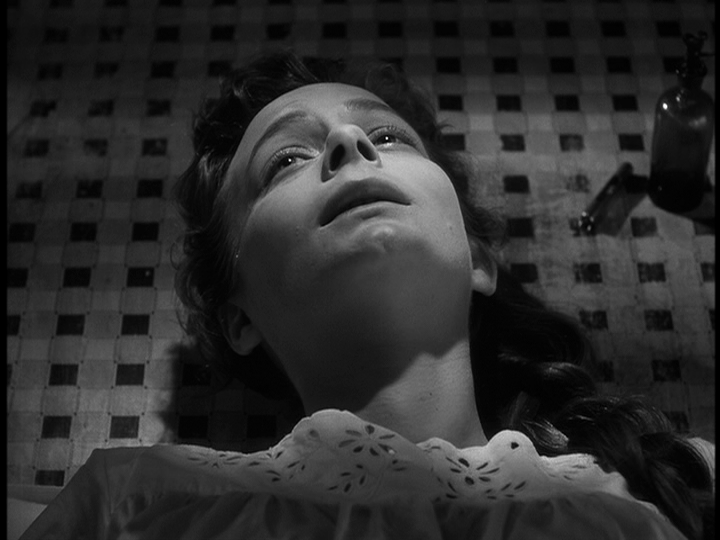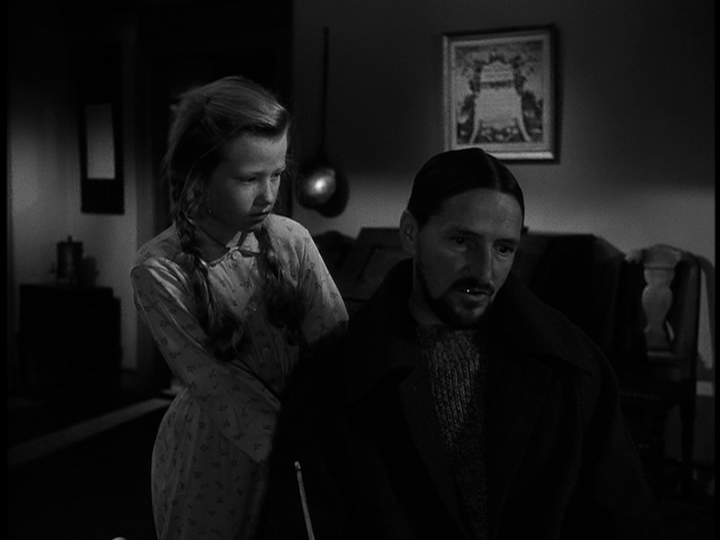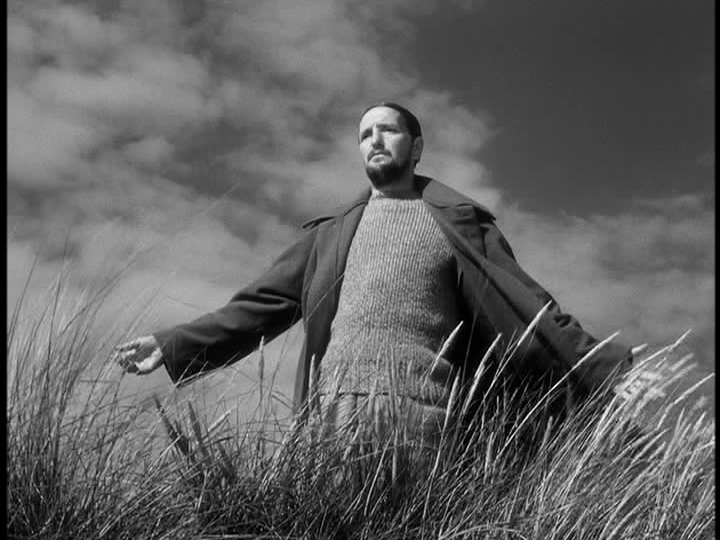|

Synopsis:
The youngest son (Cay Kristiansen) of a cynical Danish farmer (Henrik Malberg) wishes to marry the daughter (Sylvia Eckhausen) of a religiously fundamentalist tailor (Ejner Federspiel), though both fathers disapprove; meanwhile, Malberg’s son Johannes (Preben Lerdorf Rye) believes he’s Jesus Christ, while the gentle wife (Birgite Federspiel) of his son Mikkel prepares to give birth to her third child.
|
|
Genres, Themes, Actors, and Directors:
- Carl Theodor Dreyer Films
- Death and Dying
- Mental Illness
- Play Adaptations
- Religious Faith
- Scandinavian Films
Response to Peary’s Review:
Peary posits that the theme of Carl Theodore Dreyer’s adaptation of a “play by [Danish hero] Kaj Munk” — about “a proud, elderly Christian farmer whose faith has all but disappeared because of the lack of miracles in modern times” — “is that people, even priests, shouldn’t let faith in God diminish”, and that “those who are regarded as insane are actually closest to God”. To that end, one’s appreciation for this critically lauded parable will depend upon one’s willingness to accept it as something other than a traditional cinematic tale; Dreyer’s intention is not to entertain, but to provoke. However, as Peary notes, while the “beginning of the film is charming due to the simplicity of the sets and the characters” (he jokingly writes that “it wouldn’t be jarring if June Lockhart, Tommy Rettig, and Lassie dropped in for a visit”), it “becomes drawn out and silly”; he argues that while “it might work as a story told in church”, “as a film it is far-fetched”.
I’ll admit I’m essentially in agreement with Peary’s take on this one. Unlike most other reviewers (whose praise is unreserved), I find it overly slow and a tad pretentious, not to mention terribly depressing — in sum, everything Scandinavian films from this era are stereotyped as being (but see Bergman’s Smiles of a Summer Night [1955] for a refreshing counter-example). With that said, there’s no denying either the power of Dreyer’s imagery, or the integrity of his intentions; film fanatics will want to check this one out at least once, and make up their own minds about its ultimate place in the world’s cinematic canon.
Note: I was fascinated to learn (from a citation on Wikipedia) that this film was not only a critical success but a financial success as well; my, how audience tastes have changed…
Redeeming Qualities and Moments:
- Committed performances by the entire cast


- Dreyer’s typically stunning visual sensibility


Must See?
Yes, simply as one of Ordet’s most celebrated works — though your enjoyment will be highly variable.
Categories
(Listed in 1001 Movies You Must See Before You Die)
Links:
|





One thought on “Ordet / Word, The (1955)”
Not a must.
The average FF will soon fall into a confused slumber. I don’t doubt the good intentions behind the film. But I doubt just about everything else – especially the film’s ability to keep audiences awake. I like to think of myself as a patient film fanatic, especially when it comes to a film with serious artistic intent. But ‘Ordet’ truly pushes patience. It has one interesting idea: the very real issue of different sects of Christianity working against each other due to their own interests (which tend to be more man’s than God’s). But that idea takes up about ten minutes of the film.
The rest is tedious beyond belief. You find yourself watching about ten minutes of it, then starting to think, ‘Momentum must pick up at some point.’ It doesn’t. The pacing is snail-like – and it almost does seem as though Dreyer slipped the cast tranquilizers.
I have a personal interest in films about spirituality, but they can be very tricky to pull off. The trap becomes obvious here when ‘Ordet’ shifts into very mystical territory near the end; it reads like a tacked-on display of desperation for a film that has little by way of plot and no real place to build to…except something somewhat sensational.